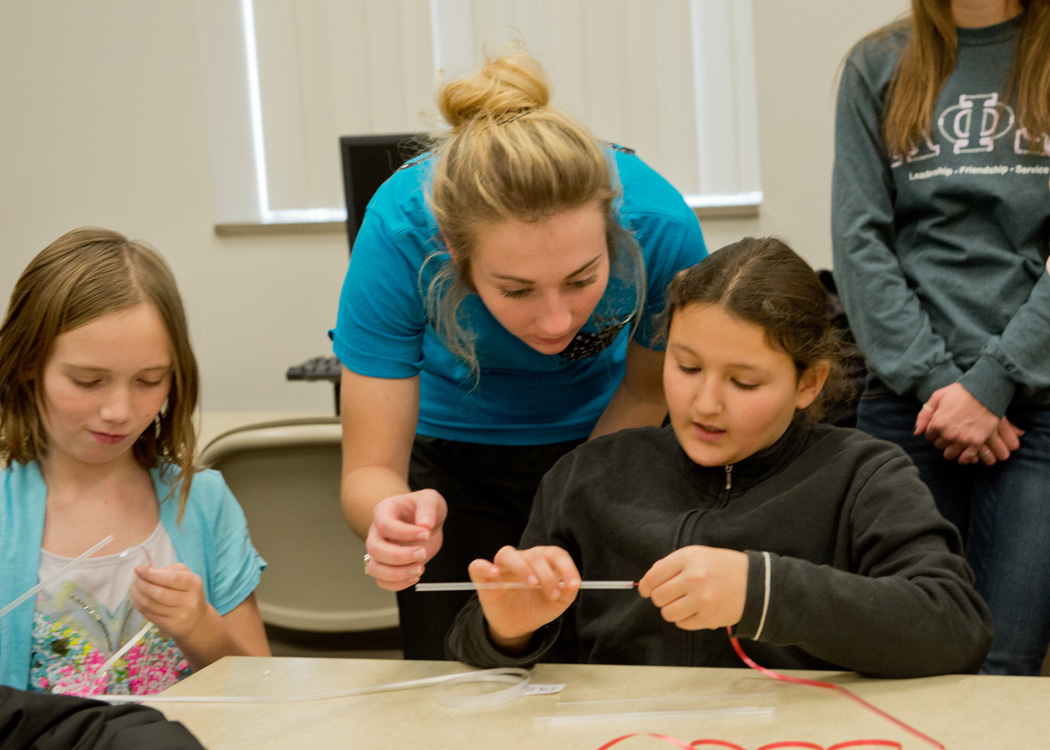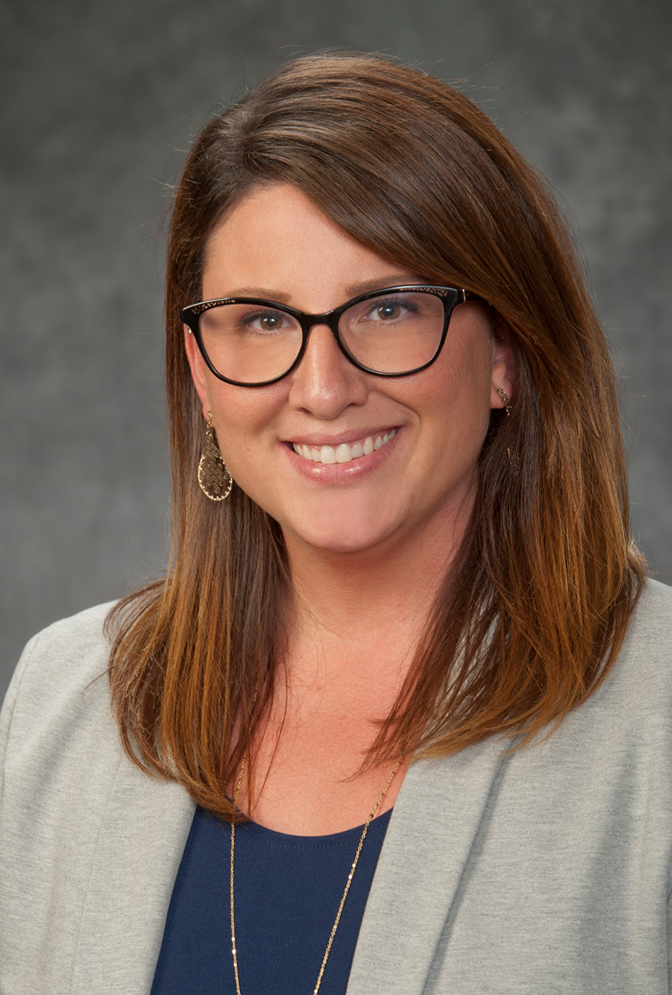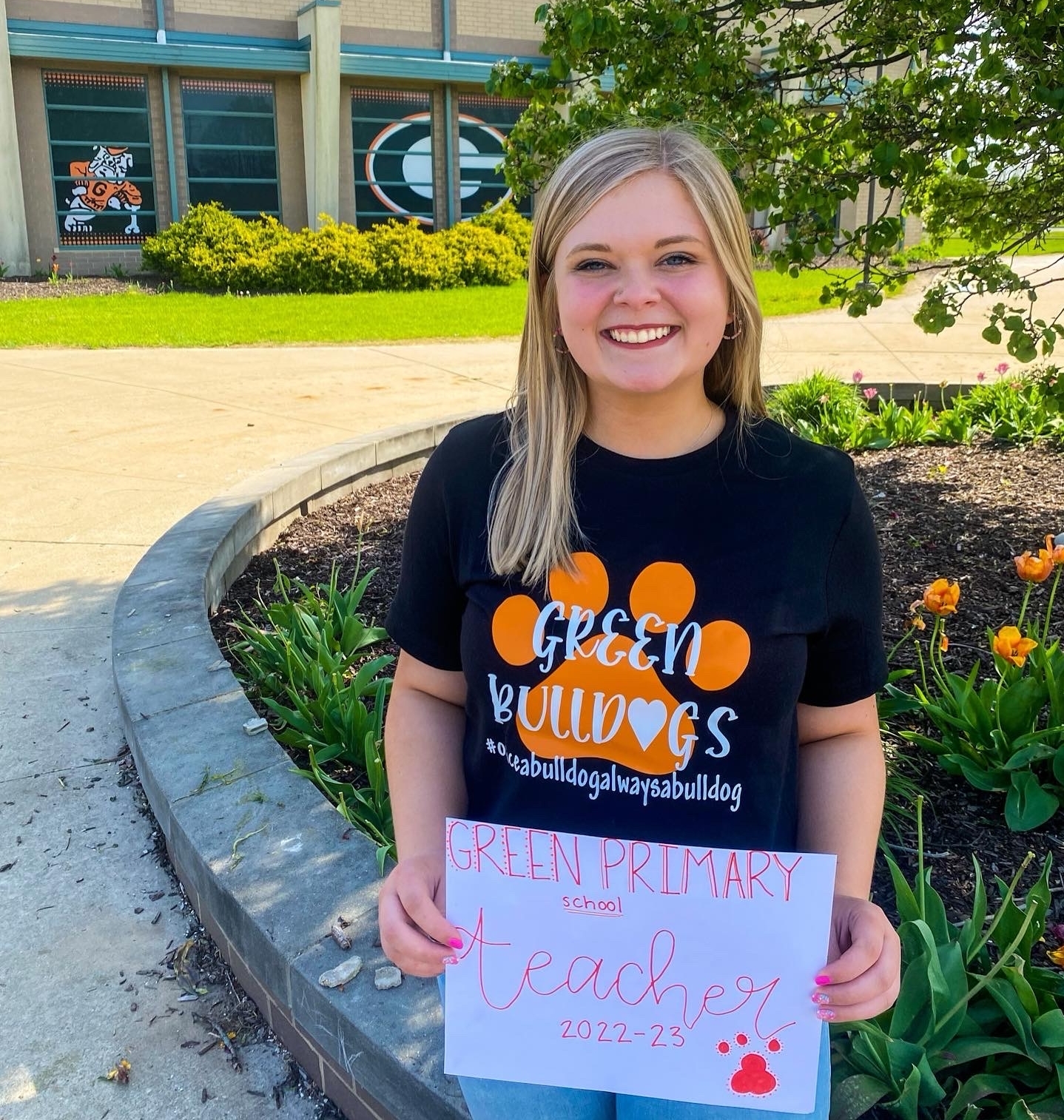Bachelor of Arts in Intervention Specialist Degree
Care for students who are forging their own unique paths with a Bachelor of Arts in intervention specialist degree from the University of Mount Union. Our School of Education is accredited through the Council for the Accreditation of Educator Preparation, (CAEP) which means you will receive in-depth knowledge through an array of specialized courses.
Our faculty are leaders who will help you develop the essential skills to become the patient and knowledgeable teachers sought after in this field. Whether you pursue a license in early childhood (Pre-K – Grade 3) or mild/moderate intervention (ages 5-21), you will be prepared for career success.
About the Program
The intervention specialist major at Mount Union will provide you with an understanding of effective strategies, legal issues, and literacy while offering the training and classroom experiences to become a thoughtful educator.
You will thrive by learning about the different types of learners who you might encounter in the classroom. Building a professional network of teacher leaders like you through national conferences and student teaching will give you the support system you need to achieve greatness in this crucial field.
Intervention Specialist Quick Facts
- 36 credit hours within the intervention specialist degree program
- 32 credit hours in the well-rounded Integrative Core
- Conduct independent or group research.
- Shadow in the classroom for 600 clock hours
- Join peers in student organizations like the Student National Education Association (SNEA)
Learn more about the Degree in Intervention Specialist
Fuel your passion for caring about young children with the Bachelor of Arts degree in intervention specialist from Mount Union. Through first-class field experiences and a network full of expert professionals, you will be ready to make a difference in the lives of students.
-
Curriculum
The University of Mount Union's School of Education's CAEP-accredited Teacher Education Program prepares candidates for meaningful careers in the field of education. Building upon a solid liberal arts foundation, the Teacher Education Program assists candidates in developing the knowledge, skills, and dispositions necessary to become effective and caring teachers in an ever-changing society. Mount Union's candidates are also prepared to become reflective, lifelong learners.
As an intervention specialist major, you will learn about the characteristics of different types of learners, classrooms, and community settings. Through clinical experience and in-depth courses, you will receive numerous hands-on opportunities to work with and plan for both individuals and groups of students. The intervention specialist major, with additional coursework, will lead to a license in teaching learners with special education needs. Students will choose an area of focus: early childhood intervention specialist or mild/moderate intervention specialist.
LEARNING OBJECTIVES
The Teacher Education Program at Mount Union prepares competent, capable and caring teachers. The common objectives developed in all program areas include:
- Candidates will demonstrate understanding of the subject matter areas and create meaningful learning experiences based on this knowledge.
- Candidates will demonstrate an understanding of each student’s cognitive, social, physical, and emotional development and to create learning opportunities that support student academic development.
- Candidates will demonstrate the ability to recognize and value student diversity and the differences in how students learn and provide instruction to accommodate such diversity.
- Candidates will demonstrate the ability to develop instructional plans based on student's needs, curriculum goals and models, subject matter, and community.
- Candidates will demonstrate pedagogical knowledge and skills and use this expertise to encourage each student to develop critical-thinking and problem-solving skills.
- Candidates will demonstrate the ability to create a classroom environment that facilitates learning and a climate that encourages fairness, positive social interactions, active learning, and self-motivation.
- Candidates will demonstrate effective verbal, nonverbal, written, technological, and media communication skills to support and enhance student learning.
- Candidates will demonstrate an understanding of the role of assessment and the use of formal and informal assessment strategies to evaluate student learning.
- Candidates will demonstrate the skills necessary for self-reflection and use this knowledge to analyze past experiences and pursue professional development opportunities.
- Candidates will demonstrate the ability to collaborate with students, candidates, parents, community members, and professional colleagues in order to support student learning and development.
- Candidates will demonstrate a sense of caring.
-
Experiential Learning
Students who wish to major in and aspire to be an intervention specialist will have ample opportunities to observe and teach in the classroom while studying at the University of Mount Union. Getting involved in extracurricular opportunities and student organizations as well will better prepare you for a wide range of careers in the field of education. Whether you want to be a teacher, coach, guidance counselor, administrator or professor, Mount Union will put you on the fast track to finding a rewarding and successful career, equipped with all of the necessary skills, knowledge and experience. These opportunities include:
- Independent research
- Research with faculty or student peers
- Tutoring students with special needs
- Membership in education student organizations
- Numerous field experiences
STUDENT ORGANIZATIONS
Kappa Delta Pi (KDP) is an international honorary for education majors. KDP was founded in 1911 and promotes excellence in and recognizes outstanding contributions to education. Members of KDP exemplify worthy education ideals, express an intention of continuing in the field of education and show evidence of leadership abilities.
Student National Education Association (SNEA) is a student-led organization on Mount Union’s campus, and is open specifically for education majors.
FIELD EXPERIENCES
Field experiences provide you with the opportunity to go out into a K-12 classroom and gain practical experience, which is critical to a successful intervention specialist teaching career after graduation. The University of Mount Union’s CAEP accredited Teacher Education Program candidates experience more than 600 clock hours in real classroom settings, observing, assisting and teaching within a wide range of public school settings with students of varying ages and exceptionalities. Because of these field experiences, you will have the opportunity to discover what does and does not work in a classroom setting as well as apply strategies learned in your courses and find out what will be your best practices.
Mount Union students can also take advantage of our clinical exchange programs. Students can broaden their horizons by choosing a placement through the Chicago Semester Program or at a Native American reservation school.
-
Careers
Through the Department of Education at the University of Mount Union, a CAEP accredited department, you can pursue a rewarding career as an intervention specialist (special education). According to the Bureau of Labor Statistics, the number of students requiring special education services has grown steadily in recent years for a number of reasons. Today, learning disabilities are being diagnosed at early ages, and opportunities for training and employment for individuals with disabilities are being emphasized through legislation.
As an intervention specialist major, you will choose between one of two paths: early childhood or mild/moderate. As an early childhood specialist, you will be able to teach learners age three through eight (prekindergarten through grade three) with mild/moderate/intensive education needs. If you pursue a career as a mild/moderate intervention specialist, fulfilling the mild/moderate/intensive education needs of students ages five through 21 (kindergarten through grade 12).
The School of Education at Mount Union is geared toward assisting candidates in obtaining a teaching position after graduation. A major or minor in any area of education provides an excellent foundation for careers in a number of fields.
RECENT EMPLOYERS
Autism Center
Cleveland Clinic Center for Autism
Mentor Public Schools
Orange City Schools
Plain Local Schools
Ravenna School District
Southeast Local
Twinsburg School DistrictCOMMON CAREERS
Schools
Childcare centers
Youth ministry
Colleges
Coaching
Human services professions
Corporate training






